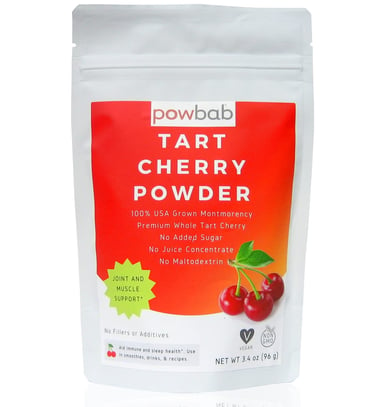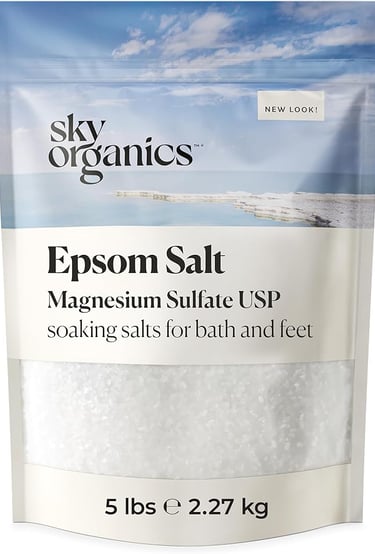Home Remedies for Gout: Natural Pain Relief Guide
Learn about natural remedies for gout and how to treat gout attacks at home. Get expert tips for managing flares, plus proven methods for immediate relief.
Isabella Ramirez
12/16/20247 min read
Table of Contents
Living with gout can be incredibly challenging. As one of the most painful forms of arthritis, gout affects over 8 million Americans, causing intense joint pain and inflammation. While medical treatment is essential, several natural remedies can help manage symptoms and provide relief during flare-ups. In this comprehensive guide, we'll explore effective home remedies for gout and what to do when an attack occurs.
Understanding Gout
Before diving into remedies, it's important to understand what gout is. Gout occurs when uric acid builds up in the blood, forming sharp crystal deposits in joints, most commonly in the big toe. This buildup leads to intense pain, swelling, and inflammation. The condition can affect anyone, but certain factors increase your risk of developing this painful form of arthritis.
The Risk Factors for Gout
Understanding your risk factors for gout is crucial for prevention and management. Here are the main factors that can increase your likelihood of developing gout:
Genetic and Biological Factors
Family History: If you have relatives with gout, your risk is higher
Age: Men typically develop gout between 30-50 years old, while women are at higher risk after menopause
Gender: Men are more likely to develop gout than women during their reproductive years
Ethnicity: Some ethnic groups have higher rates of gout
Health-Related Risk Factors
Obesity: Excess weight increases uric acid production
Medical Conditions:
High blood pressure
Diabetes
Kidney disease
Heart disease
Metabolic syndrome
Recent Surgery or Trauma: Can trigger gout attacks
Medications: Certain drugs can raise uric acid levels, including:
Diuretics ("water pills")
Low-dose aspirin
Some blood pressure medications
Anti-rejection drugs for organ transplants
Lifestyle Risk Factors
Diet High in Purines:
Red meat and organ meats
Certain seafood (anchovies, sardines, scallops)
High-fructose corn syrup
Alcohol Consumption:
Beer is particularly problematic
All types of alcohol can increase risk
Sugary Beverages: Regular consumption increases risk
Rapid Weight Changes: Both gaining and losing weight too quickly
Dehydration: Not drinking enough water
Complications if Left Untreated
Untreated gout can lead to serious health issues:
Chronic Gout: More frequent and severe attacks
Joint Damage: Permanent joint destruction
Tophi: Uric acid crystal deposits under the skin
Kidney Stones: Formation of uric acid stones
Cardiovascular Problems: Increased risk of heart disease
Early Warning Signs of Gout
Learning to recognize early warning signs can help you prevent or minimize attacks:
Slight joint stiffness
Mild joint pain
Redness in joints
Decreased range of motion
Tingling or itching sensation in joints
Effective Home Remedies for Gout Relief
1. Cherry Power
Research shows that cherries are nature's answer to gout pain. These ruby-red fruits contain powerful compounds that help lower uric acid levels and reduce inflammation. Whether you prefer fresh cherries or unsweetened cherry juice, consuming them daily can make a significant difference in managing gout symptoms.
How to use:
Eat 10-12 fresh cherries daily
Drink 8-16 ounces of unsweetened cherry juice
Consider cherry extract supplements (consult your healthcare provider first)
2. Apple Cider Vinegar Tonic
Apple cider vinegar (ACV) helps alkalize the body and promotes the elimination of excess uric acid. While its taste might take some getting used to, the benefits are worth it.
Daily tonic recipe:
Mix 1 tablespoon raw, unfiltered ACV in 8 ounces of water
Add a teaspoon of honey (optional) for taste
Drink once or twice daily
3. Ginger and Turmeric Tea
These ancient spices are renowned for their anti-inflammatory properties. Combined in a soothing tea, they can help reduce gout pain and inflammation.
Recipe:
Grate 1-inch fresh ginger root
Add ½ teaspoon turmeric powder or grated fresh turmeric
Steep in hot water for 10 minutes
Strain and add honey if desired
Drink 2-3 cups daily
4. Epsom Salt Soak
An Epsom salt foot bath can provide quick relief during flare-ups. The magnesium in Epsom salt helps reduce inflammation and ease pain.
How to prepare:
Add 1 cup of Epsom salt to warm water
Soak affected area for 15-20 minutes
Repeat 2-3 times daily during acute attacks
5. Hydration
Proper hydration is crucial for managing gout. Water helps flush excess uric acid from your system and prevents crystal formation.
Daily hydration goals:
Drink at least 8 glasses of water daily
Add lemon for extra benefits
Monitor urine color (should be light yellow)
What to Do During a Gout Attack
When gout strikes, quick action can help minimize pain and reduce the attack's duration. Follow these steps:
Immediate Actions
Rest and Elevate: Stop all activity and elevate the affected joint above heart level to reduce swelling.
Apply Ice: Use an ice pack wrapped in a thin towel for 20-30 minutes several times daily. This helps reduce inflammation and numb the pain.
Take Over-the-Counter Pain Relief: NSAIDs like ibuprofen or naproxen can help manage pain and inflammation. Always follow recommended dosages.
Additional Management Steps
Increase Hydration: Drink more water than usual to help flush out excess uric acid.
Avoid Trigger Foods: Stay away from high-purine foods, alcohol, and sugary drinks during an attack.
Download Free Complete Gout Diet: Foods to Avoid / Low-Purine Food List (pdf)
Use Prescribed Medications: If your doctor has prescribed colchicine, take it at the first sign of an attack.
Apply Topical Treatments: Over-the-counter anti-inflammatory creams can provide localized relief.
Prevention Tips
While treating gout attacks is important, preventing them is even better. Here are key preventive measures:
Maintain a healthy weight
Follow a low-purine diet
Download Free Complete Gout Diet: Foods to Avoid / Low-Purine Food List (pdf)
Limit alcohol consumption
Stay well-hydrated
Exercise regularly
Take prescribed medications consistently
Monitor and manage blood pressure
Get regular check-ups
Keep a food diary to identify triggers
Manage stress levels
When to See a Doctor
While home remedies can be effective, medical attention is necessary if:
Pain is severe and doesn't improve with home treatment
You have frequent attacks
You develop a fever
The affected joint becomes extremely hot or red
Symptoms last longer than 10 days
You have multiple joints affected
You experience new or unusual symptoms
Frequently Asked Questions About Gout
Is gout hereditary?
While genetics play a role in gout susceptibility, having a family history doesn't guarantee you'll develop gout. However, it does mean you should be more vigilant about prevention and lifestyle modifications.
Can women get gout?
Yes, although gout is more common in men, women can develop gout, especially after menopause. This is partly due to the protective effects of estrogen on uric acid levels before menopause.
How long does a gout attack typically last?
Without treatment, a gout attack typically lasts 3-10 days. However, with proper treatment and management, you can often reduce the duration and severity of attacks.
Can losing weight help prevent gout?
Yes, maintaining a healthy weight can help prevent gout attacks. However, it's important to lose weight gradually, as rapid weight loss can temporarily increase uric acid levels and trigger an attack.
Are all high-purine foods bad for gout?
Not necessarily. While some high-purine foods should be avoided (like organ meats and certain seafood), others, like certain vegetables (spinach, mushrooms), haven't been shown to increase gout risk significantly.
Can stress trigger a gout attack?
Yes, stress can contribute to gout attacks. Stress hormones can affect uric acid levels and inflammation in the body. Stress management techniques like meditation and regular exercise can help.
Is coffee good or bad for gout?
Research suggests that moderate coffee consumption (both regular and decaf) may help lower uric acid levels and reduce gout risk. However, individual responses may vary.
Can weather changes affect gout?
Many people report that their gout symptoms worsen during weather changes, particularly in cold or humid conditions. While the exact mechanism isn't fully understood, maintaining consistent treatment during weather changes may help.
Should I exercise during a gout attack?
During an acute attack, it's best to rest the affected joint. Once the attack subsides, gentle exercise can help prevent future attacks. Always consult your healthcare provider about appropriate exercise timing and intensity.
Can certain medications trigger gout?
Yes, several medications can affect uric acid levels, including:
Diuretics
Low-dose aspirin
Some blood pressure medications
Immunosuppressants Never stop prescribed medications without consulting your healthcare provider.
Is gout curable?
While gout isn't curable, it is manageable. With proper medication, diet, and lifestyle changes, many people successfully prevent or minimize gout attacks.
Can I drink alcohol if I have gout?
It's best to limit or avoid alcohol, especially beer, as it can increase uric acid production and trigger attacks. If you do drink, stay well-hydrated and avoid excessive consumption.
How quickly do natural remedies work?
Natural remedies typically work gradually and are best used for prevention or alongside conventional treatments. During an acute attack, medical treatment may be necessary for quick relief.
Can gout affect joints other than the big toe?
Yes, while the big toe is most commonly affected, gout can occur in any joint, including:
Ankles
Knees
Elbows
Wrists
Fingers
Conclusion
Managing gout requires a comprehensive approach combining medical treatment with natural remedies. While these home remedies can provide significant relief, they work best as part of a complete treatment plan developed with your healthcare provider. Remember to listen to your body and adjust these remedies as needed for your specific situation.
The key to successful gout management lies in prevention and prompt treatment of attacks. By understanding your risk factors, recognizing early warning signs, and having a plan for both prevention and treatment, you can take control of your gout and improve your quality of life.
Disclaimer: This article is for informational purposes only and should not replace professional medical advice.
Have you tried any of these remedies for gout? Share your experience in the comments below or sign up for our newsletter for more health tips and natural remedies.
Supercharge Your Health with these 7 Smoothie Secrets

Empowering women to be healthy, happy, and beautiful.
Affiliate Disclosure: Some of the links on this site are affiliate links, which means that we may receive a small commission if you make a purchase through them. This is at no extra cost to you. This helps support this website and allows us to continue to create content like this.
©2025 FemmeJourney. All rights reserved.











